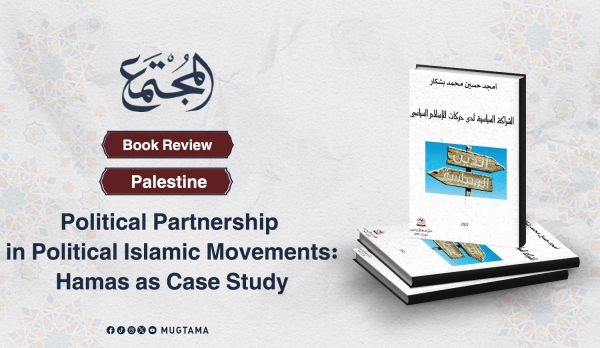Political Partnership in Political Islamic Movements: Hamas as Case Study Featured
The book "Political Partnership in Political Islamic Movements: A Case Study of Hamas," authored by Dr. Amjad Bishakar, a professor of political and international sciences, offers an in-depth study of the concept of political partnership among political Islamic movements, focusing on Hamas as a primary model.
Explore the Challenges
The book aims to explore the challenges these movements face in their pursuit of establishing a genuine political partnership in the Arab world, as well as to analyze their ability to present political programs that meet national priorities at the expense of social programs.
The main question in the book revolves around the ability of political Islamic movements to be part of a real political partnership in the Arab homeland, as well as exploring the most significant obstacles these movements have encountered, whether on an intellectual or behavioral level, which have hindered the development of an effective political partnership.
Hamas as a Case Study
The author chose Hamas as a case study because it is one of the most prominent movements in this context, possessing a national specificity that makes it an advanced model in the quest to achieve a national political partnership based on a unified national program.
The book discusses the difficulties faced by political Islamic movements in exercising governance and achieving political partnership. These difficulties stem from the exclusionary and marginalization policies adopted by Arab regimes and their affiliated forces. These obstacles increased after the "Arab Spring," when Islamists were able to reach power, giving rise to new challenges related to the state’s authority and issues of the nation and homeland, as well as the prioritization of political and social programs.
Two Main Approaches
The book adopts two main approaches in its study: the first is the case study approach, where political partnership is considered a single case subjected to analysis of thought and behavior in political Islamic movements, based on a review of the literature. The second approach relies on conducting personal interviews with specialists and Islamic political actors from various parts of the Arab world.
The book is divided into three main parts:
- The first part addresses the concept of the state in both Western and Arab thought, elucidating the significant gap between the two models in how the state is managed and examines whether the Arab state can provide an environment for the production of a genuine political partnership.
- The second part reviews political Islamic movements and analyzes their behavior and intellectual foundations regarding political partnership.
- The third part focuses on Hamas and its experience in political partnership.
Through this analysis, the book arrives at many important conclusions, the most notable of which are:
- The issue of partnership is not restricted solely to political Islamic movements but is a general issue faced by all political forces in the Arab world, resulting from historical experiences and the interplay of subjective and objective factors; thus, discussing political partnership requires a dialogue on a new social and political contract for state governance.
- Political Islamic movements are part of the fabric of Arab society, and like many other political forces, they have been excluded. This exclusion has prompted them to turn their attention toward deep society, where a centrality has emerged that is distributed between Islamic movements and the deep state represented by the military and liberal regimes.
- One of the most notable contributions made by Hamas in this context is its adoption of the Document of Principles and General Policies in 2017, which represents a step toward building a genuine political partnership by addressing many questions that have been barriers to political partnership, such as issues related to the Palestinian state, the Palestine Liberation Organization, resistance, as well as topics concerning democracy, women, and Palestinian others.


